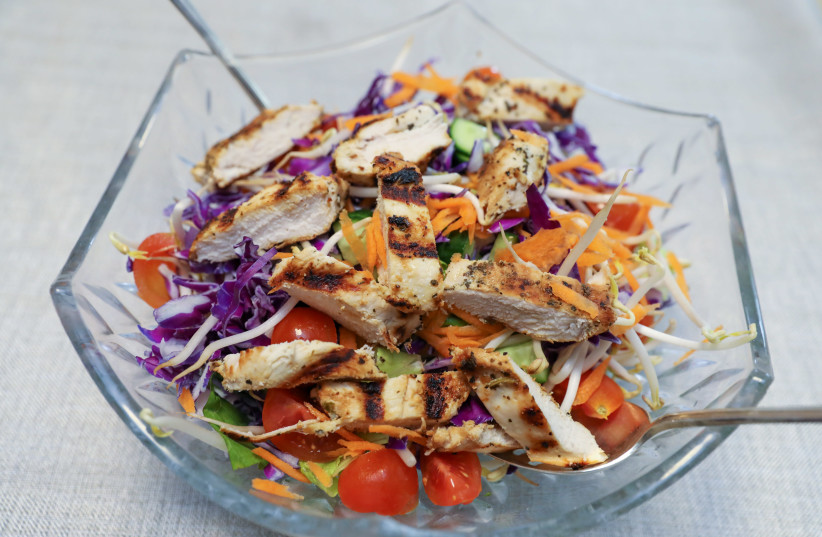Just before the next Pesach holiday is here for good, a new study recently published in the Journal of Food Protection shows that there’s a surprising number of people who are unfamiliar with one of the most basic cooking tips when it comes to making chicken: wash your hands, not the meat.
Researchers from North Carolina State University recruited 300 home cooks and gave them a task: Make a salad and cook chicken. They were placed in special experimental kitchens equipped with cameras that monitored their preparation techniques. In assessing the effect of poultry washing on kitchen contamination, researchers found that more than a quarter of study participants contaminated the salad they prepared after washing the poultry.
The 300 cooks who were recruited testified that they regularly wash poultry before cooking. Researchers then sent information on food safety to 142 of the study participants via email, describing risk reduction efforts including the recommendation not to wash poultry during food preparation. The remaining 158 study participants didn’t receive this information.
Participants were then asked to cook chicken thighs and make a salad. After preparing the thighs, but before putting the chicken in the oven, participants were called out of the kitchen for a short interview. They were then sent back to the kitchen to cook the thighs, prepare the salad and clean the kitchen as they would at home.
What participants didn’t know was that the chicken thighs were vaccinated with a harmless strain of bacteria that researchers could identify. This allowed researchers to examine kitchen surfaces to see if cross-contamination had occurred during food prep and cooking. When participants left the kitchen to be interviewed, the researchers examined the kitchen to identify any possible contamination. This process was repeated after each participant had cooked the meal and cleaned the kitchen. The salad was also tested for possible contamination.

Ninety-three percent of participants who received the email with prep instructions didn’t wash the chicken, compared to 39% of participants who didn’t receive the explanations in the email. However, the researchers were surprised to see that people who did wash the chicken and people who didn’t had similar levels of raw chicken contamination in their salads. So what's the explanation?
"We think the infection in the salad is due to people doing a bad job of washing their hands after treating the raw chicken, and/or doing a poor job of disinfecting the sink and surrounding surfaces before rinsing or treating the salad," the researchers said. "No matter if people washed their chicken, the sinks became contaminated with the raw chicken, while there was relatively little contamination of the nearby counters," researchers said.
"This was a bit surprising because the common logic is that the risk associated with washing chicken is because water can splash from the chicken and contaminate the surrounding surfaces. Instead, the sink itself becomes contaminated, even when the chicken isn’t washed,” they said. Washing the chicken still isn’t a good idea, But this study demonstrates the need to focus on preventing sink contamination and emphasizes the importance of washing hands and cleaning and disinfecting surfaces.
